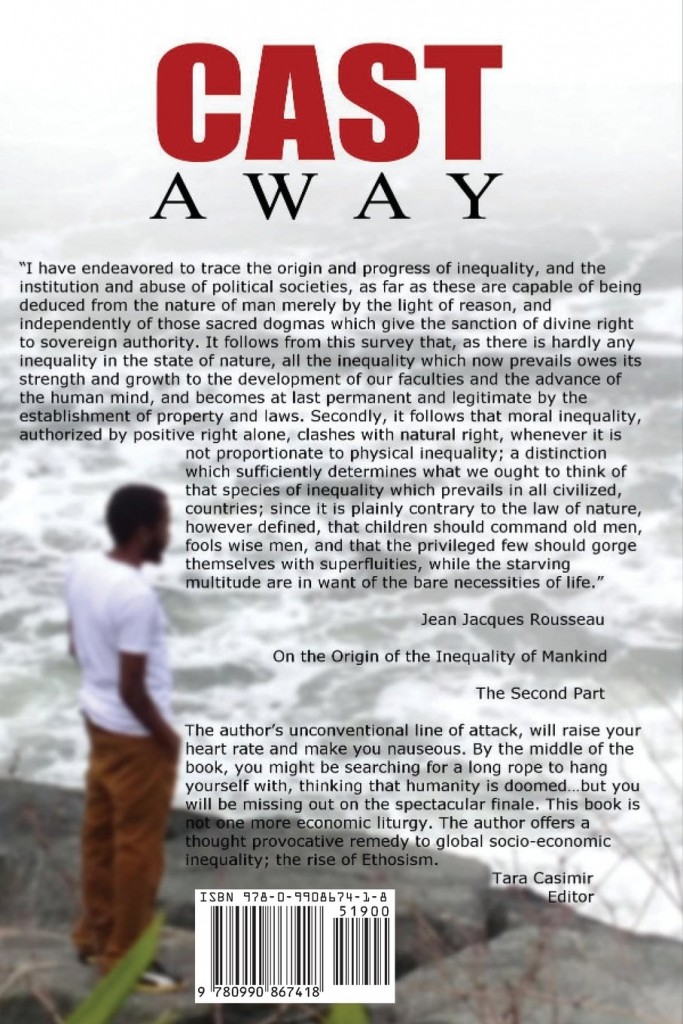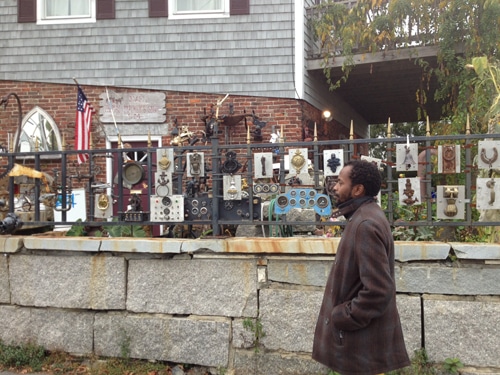Can you tell us a bit about your background in Economics?
 Growing up in a third world country where only two socioeconomic classes exist, the few almighty powerful on the top while the rest of the depraved masses scrambling at the bottom, and when you take the same picture and retrace the same reality through the geopolitical Cold war implications on the national economy, everybody was a victim. That experience will make you either resigned to be a slave to the system, or you made socio-economic injustice a lifetime mission; I chose the latter, and I ended up spending enough time in stringent economic monasteries, where this field is taught as a science. In time, I have come to reject that notion and I deliberately chose the classical economists’ dialectic, an approach of the discipline of economics as an art of social substance. Economics is an addition to my arsenal of business academic training (accounting, management and finance), philosophy, politics, and real life tragedies. All of these elements come through in my writing content and style, which receives either scathing insults or abundant praise for not being the “normal” economics cadence.
Growing up in a third world country where only two socioeconomic classes exist, the few almighty powerful on the top while the rest of the depraved masses scrambling at the bottom, and when you take the same picture and retrace the same reality through the geopolitical Cold war implications on the national economy, everybody was a victim. That experience will make you either resigned to be a slave to the system, or you made socio-economic injustice a lifetime mission; I chose the latter, and I ended up spending enough time in stringent economic monasteries, where this field is taught as a science. In time, I have come to reject that notion and I deliberately chose the classical economists’ dialectic, an approach of the discipline of economics as an art of social substance. Economics is an addition to my arsenal of business academic training (accounting, management and finance), philosophy, politics, and real life tragedies. All of these elements come through in my writing content and style, which receives either scathing insults or abundant praise for not being the “normal” economics cadence.
 You rage against social injustice and economic inequality, what inspired this?
You rage against social injustice and economic inequality, what inspired this?
My anger is born out these wizards, who toy around with economic models that are filled with assumptions that craps on humanity. The problem is economics academia has been acting as if the primary inquiry, wealth distribution, has been solved. As a consequence, the field has evolved into a mechanical formulaic process of shooting out outcomes. However, when you travel around and meet real people and witness the ravaging consequences of capitalism, you cannot help but be angry like I am, and reexamine the status quo.
Your new book “Cast Away: For These Reasons: Economic Jihad” strikes at the heart of Capitalism, what’s wrong with Capitalism (tongue in cheek)?
There’s nothing wrong with capitalism. It is a system which is well suited to a different world and time when slavery was viewed as an efficient production model and bigotry was one of the respected methodologies to develop social constructs. We have come to have come to forget that capitalism sprung out in England at the time peasants lost their lands and didn’t have any skills. And most of what was brought to the marketplaces were produced by hand. In this picture, the masses were at the mercy of the bourgeois, who possessed the ability and right to initiate an enterprise and controlled primary means of production. This doesn’t justify the social injustices inherent to capitalism, but it demonstrates how easy it was for a few culprits to enslave laboring masses who are doled out a meager recompense, also known as wage. The class bargaining argument has changed. In light of that shift, we can no longer stand complacent to this savage and frankly archaic economic system.
Why are you in favor of casting away our old financial and economic beliefs?
In the twenty first century, we don’t trade anymore; the notion of “means of production” has become a fallacy. The market has been replaced by open interaction, and now more than ever, people acquire and own means to engage, participate, or get involve in an organization. In light of this new paradigm, it is an abomination that profiteers still get the lion’s share of the enterprise. In Cast Away: For These Reasons I make the case for reexamination of the way we view and negotiate recompense. And this is where Ethosism comes into play.
What is “Ethosism” and why do people need to understand this concept?
 Ethosism is a term that I coined to reflect the individualization of open interactions that are occurring now in our daily lives. However, the world has yet to stop listening to capitalist pleasers, lumpenintellectuals, and accept this new paradigm as a new way to frame commerce. It’s a true meritocracy system that could put 99 percent to the top while taking care of the 1 percent at the bottom. In my book, I go even further, and say “let’s get rid of economics all together; it is plagued with stupid cacophony. Why not start fresh with quantum paradigm study of the way we transform, sell and buy, and above all distribute surplus.”
Ethosism is a term that I coined to reflect the individualization of open interactions that are occurring now in our daily lives. However, the world has yet to stop listening to capitalist pleasers, lumpenintellectuals, and accept this new paradigm as a new way to frame commerce. It’s a true meritocracy system that could put 99 percent to the top while taking care of the 1 percent at the bottom. In my book, I go even further, and say “let’s get rid of economics all together; it is plagued with stupid cacophony. Why not start fresh with quantum paradigm study of the way we transform, sell and buy, and above all distribute surplus.”
How can “Ethosism” shore us against a corrupted money system?
A lot people have asked me the same question. Putting aside that there is no fix to evil, and unlike ISIS that will chop your hands off for stealing, this social economic revolution put in my advised framework will take the power away from cigar smoking capitalists. In doing so, it will detoxify the remnants of our financial culture.
Where can we get your book and learn more about “Ethosism”?
Hold on for a minute! Cast Away: For These Reasons has just been out for couple months now. Even though I wrote all of my books around the same time, I decided to launch Cast away first because there are concepts and terminologies that need to be digested. The French edition of Cast Away, L’enfer c’est lui, is coming out in May, and I think that a year is enough to build a platform for a new social economic injustice debate before releasing my second book. Ethosism is currently listed ready for pre-order and will be available on December 25, 2015.
Jo M. Sekimonyo discusses Economic Cast Away
